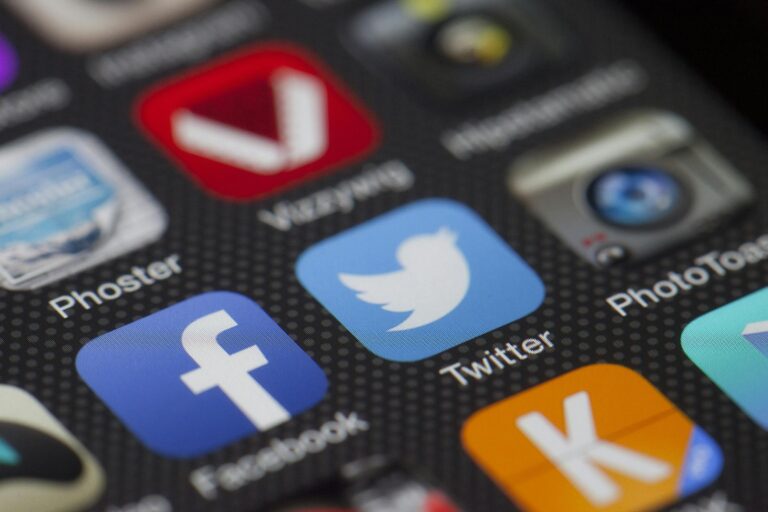Introduction
Ever caught yourself mindlessly scrolling through Instagram, then suddenly wondering where the last hour went? Social media has become so deeply woven into our daily lives that we hardly notice its impact. It’s where we connect, share, express ourselves, and even learn. But have you stopped to think about how it’s affecting us, especially mentally?
For educators, parents, and mental health advocates, understanding social media’s role in shaping minds—especially young minds—is more critical than ever. While it has its perks, the consequences of unchecked use can’t be ignored. This post dives into the good, and the bad, and how we find a healthier balance.
Table of Contents
The Positive Impact of Social Media
Social media isn’t all bad. It’s a pretty powerful tool when used with intention.
Imagine this—you’re having a tough day, and then you stumble upon someone’s post sharing their mental health struggles and how they overcame them. Instantly, you feel less alone. That’s the beauty of social media. It connects us. Platforms like TikTok, Instagram, and Twitter have become spaces where people share their battles with anxiety, depression, or even eating disorders. They remind us it’s okay to talk about mental health, breaking the long-held stigma around it.
Take initiatives like #BellLetsTalk or #MentalHealthAwareness campaigns—these movements spread like wildfire on social platforms, educating millions and encouraging open conversations about mental health. Communities form around shared experiences, offering support and a sense of belonging to people who might otherwise feel isolated.
And the access? Incredible. With just a swipe, you get free advice straight from therapists, psychologists, and mental health experts sharing ways to cope, heal, and improve your well-being. That level of accessibility is revolutionary for many.
The Dark Side of Social Media
But there’s also a darker, less Insta-worthy side to it.
Studies show that excessive social media use is closely linked to increased levels of anxiety, depression, and poor self-esteem. Why? Because we’re often caught in the comparison game. Scrolling past perfectly curated vacations, flawless selfies, or someone achieving life goals can make us feel like we’re falling short, even if we were perfectly content just a moment ago.
Not to mention, the cycle of seeking likes or comments can spawn an unhealthy addiction to external validation. Ever found yourself constantly checking to see how many likes a post got? Yep, been there. Social media algorithms are designed to keep us engaged, but sometimes, they pull us deeper into the rabbit hole of mindless scrolling, leaving us detached and exhausted.
Then there’s the doomscrolling. With nonstop news feeds filled with tragedies, disasters, and global conflicts, it’s no surprise that many feel mentally drained. Social media, when overused, can turn into an overwhelming mental load rather than a tool for connection and joy.
Social Media and Youth Mental Health
For kids and teenagers, this impact often runs even deeper.
Social media magnifies the pressures they face today. From keeping up with trends to amassing followers, they’re juggling more than we did at their age. Add in cyberbullying, and you have a recipe for emotional strain.
Cyberbullying is unfortunately rampant, with studies showing that around 59% of U.S. teens have experienced it. Unlike traditional bullying, it doesn’t stop when the school bell rings. It follows them home, invading their safe spaces.
And then there’s FOMO—fear of missing out—that constant worry of not being included in exclusive events or fun group moments. Seeing peers live out highlight reels online can foster feelings of inadequacy or isolation. The constant pressure to get everything just right—whether a photo caption or TikTok video—adds another layer of stress many youths struggle to articulate.
This isn’t even touching on the distorted self-image issues that emerge from filters, editing apps, and the unrealistic beauty standards they promote. Teens are growing up believing who they are isn’t enough.
Balancing the Scales: Healthy Social Media Use
But here’s the thing. Social media itself isn’t inherently bad—it’s all about how we use it. That’s where parents, educators, and advocates can step in.
For Parents
- Set Boundaries: Implement limits on screen time. Apps like Apple’s Screen Time or Google’s Digital Wellbeing can help manage usage.
- Lead by Example: If you’re glued to your screen, don’t be surprised when your kids are too. Model healthy boundaries yourself.
- Encourage Open Discussions: Create a safe space where kids can talk about their online struggles without fear of judgment.
For Educators
- Include Digital Literacy in Curriculum: Teach students about the effects of social media, both good and bad.
- Bring Awareness to Cyberbullying: Host discussions or workshops to empower students to report or safely handle cyberbullying incidents.
For Everyone Else
- Unfollow and Curate: Hit the unfollow button on accounts that make you feel small. Instead, follow creators who uplift and inspire you.
- Take Breaks: A day (or week) away from social media can be cleansing. Use that time to reconnect IRL.
- Limit Notifications: Constant pings and alerts can pull you into a social media spiral. Keep notifications to a minimum and reclaim your time.
One strategy that’s been a personal lifesaver is setting intentional time blocks for scrolling. For example, I’ll say, “I’m only checking Instagram for 20 minutes after lunch.” It’s been a game-changer for keeping my usage in check.
Lastly, focus on creating instead of consuming—post that blog, share your art, or write about a cause you care about. When you use social media intentionally, it feels like you’re in control again.
Take the First Step Towards Awareness
Social media is a double-edged sword—it can either uplift or harm, depending on how we wield it. As educators, advocates, and parents, it’s our job to be proactive in addressing its impact, especially on younger generations. Understanding its nuances can help steer its use in healthier directions.
If you’ve found this post helpful, share it widely. The more we talk about the effects of social media, the more we can empower each other to be mindful of our mental health. Conversations like these are where change begins.
Feel ready to take charge of your social media habits? Start today.





















0 Comments